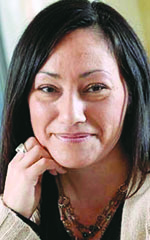Another remote working ethics opinion

Nicole Black
In March of 2020 when the first shutdowns occurred, everyone believed we’d be back to normal in a few weeks. Now, more than a year and a half later, it’s clear that the “old normal” is a thing of the past.
Pandemic surges are occurring across the country and businesses are transitioning back-and-forth from remote work to in-office work. Many larger law firms have pushed back in-office start dates and many firms continue to allow some lawyers and employees to work remotely at least part time, for the near future and possibly for the long-haul.
In other words we’re heading into a “new normal” and the way the business was conducted before the pandemic is likely a thing of the past. Given that reality, it’s no surprise that since the very start of the pandemic, ethics committees across the country have handed down opinions on how to work remotely while maintaining ethical compliance.
The Pennsylvania Bar Association was the first to do so in April of 2020 with Formal Op. 2020-300. Since then a number of different ethics committees have weighed in on ethical issues related to working remotely from jurisdictions including New York, the District of Columbia, Florida, Delaware, and California.
Most recently, the Bar Association of San Francisco joined the fray with Opinion 2021-1, which was issued in August. At issue in this opinion is whether “a lawyer, who is licensed in one or more jurisdictions but practices law remotely from another jurisdiction where the lawyer resides and is not licensed, (is) engaged in the unauthorized practice of law?”
The Ethics Committee considered two different scenarios in making its determination. In the first, the attorney — who was licensed in a state other than California and worked at a firm located in that same state — worked remotely from California due to the pandemic. In that situation, the committee concluded that practicing law remotely in this manner was permissible: “Neither Lawyer nor State A Firm has a law office in California. All of Lawyer’s and State A Firm’s communications about Lawyer and Lawyer’s services specify that Lawyer is licensed only in State A. The mere fact of Lawyer’s residence in California poses no greater risk of harm to a California person or entity than if Lawyer resided in State A. Under these facts, Lawyer is not violating B&P Code sections 6125 or CRPC Rule 5.5(b).”
In the second scenario, a California-licensed attorney worked remotely from another state. The committee’s determination as to whether this was ethical boiled down to the very lawyerly response of “it depends.” The committee opined: “For the lawyer who is licensed to practice in California, but who is residing in another jurisdiction where the lawyer is not licensed, the lawyer must not practice law in violation of the regulations of the profession in that jurisdiction, including any rules or laws of the jurisdiction that concern the unauthorized practice of law. The lawyer must also adhere to California’s rules and laws as needed to maintain a California law license.”
The committee’s conclusions regarding each scenario are in accordance with the determinations made by most other ethics committees that have addressed these issues. I fully expect to see additional opinions in the coming months from other jurisdictions on this issue, since remote working is likely to be a permanent part of our culture due to the prolonged effects of the pandemic.
In other words, remote work is undoubtedly here to stay. If your firm hasn’t yet invested in a robust suite of cloud-based remote working tools, what are you waiting for? There’s no better time than now to ensure that your law firm has the technology it needs to the ensure the long-term business continuity needed in order to thrive even in the face of unpredictability and future uncertainty.
Nicole Black is a Rochester, New York attorney, author, journalist, and the Legal Technology Evangelist at MyCase legal practice management software. She is the nationally recognized author of “Cloud Computing for Lawyers” (2012) and co-authors “Social Media for Lawyers: The Next Frontier” (2010), both published by the American Bar Association. She also co-authors “Criminal Law in New York,” a Thomson Reuters treatise. She writes regular columns for Above the Law, ABA Journal, and The Daily Record, has authored hundreds of articles for other publications, and regularly speaks at conferences regarding the intersection of law and emerging technologies. She is an ABA Legal Rebel, and is listed on the Fastcase 50 and ABA LTRC Women in Legal Tech. She can be contacted at [email protected].
Share this story, choose a platform
Brought to you by BridgeTower Media
Free Weekly Newsletter
Recommended content
Public Relations: Why engaging a PR professional is essential for attorneys
Public Relations: Why engaging a PR professional is essential for attorneys By Ellen Keiley Before engaging a public relations professional [...]
For lawyers looking to make it rain: Discipline eats motivation for breakfast
The motivation to achieve worthwhile goals comes and goes; it’s having the discipline to start and then keep up with [...]
7 strategies to maximize your AI-powered search market share
Here are tips for “future-proofing” a prominent position for your firm by saturating the search engine results pages (SERPs) of [...]
After 35 years, now what’s next for law firms?
The authors look back at how well one of them did in 1989 when she predicted coming trends in the [...]

